The Unsung Architect: Joe Moss and the Making of the Smiths
Before Johnny Marr’s fateful knock on Morrissey’s door in May 1982, there was a meeting just as fateful. Indeed, had it not occurred, it is very likely there never would have been a band called the Smiths.
Joe Moss was a successful Mancunian entrepreneur who rented several floors at 70, 72 Portland Street in central Manchester from which he managed a music publishing business, a clothing factory, as well as a retail clothing shop - Crazy Face. Moss also had another Crazy Face shop in Chapel Walks in Manchester, which was located next to X-Clothes, a shop where Johnny Marr worked.
Marr began frequenting the Crazy Face shop in Chapel Walks, drawn in by its inspiring aesthetic of music constantly playing and walls decorated with photographs of legendary rock, jazz, and blues artists.
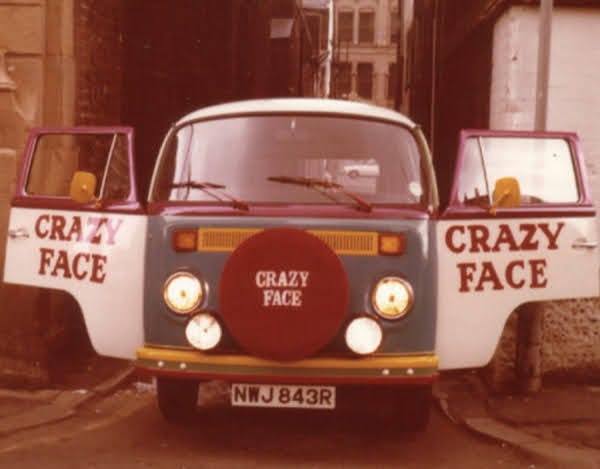
When Marr was introduced to Moss on the floor of Crazy Face, he extended his hand and said, “My name is Johnny Marr, and I’m a frustrated musician.” Moss, an aspiring guitarist himself, invited Marr to stop by his office. There, he handed Marr his guitar and asked him to play. According to Moss, “This little kid, sitting across the table from me, just blew me away completely.”1
Despite being twenty years Marr’s senior, Moss quickly formed a close friendship with him. Marr confided that he wanted to put a band together, and Moss encouraged his new friend’s musical ambitions. Before long, Marr accepted Moss’s offer to run the Crazy Face shop, along with an invitation to move into the Moss household. As Marr struggled to form a band, he came to realize he needed a songwriting partner - someone who could write the lyrics to accompany his compositions.
While Marr had briefly encountered Morrissey a few years earlier at a Patti Smith concert2, the two otherwise didn’t know each other. However, Marr knew of Morrissey by reputation. Morrissey had briefly sung in a Manchester punk band called the Nosebleeds and was known in the local music scene for his wit, intellect, and lyrical ability. In fact, a mutual acquaintance, Billy Duffy - who would later become the guitarist for The Cult - had previously shown Marr some lyrics Morrissey had written.
According to Marr, it was Moss who “put the idea in my head to go and knock on Morrissey’s door” - which, of course, he did. The rest, as they say, is musical history.
Joe Moss was born in 1942 in Stockport, Greater Manchester. From an early age, he demonstrated a keen eye for opportunity. Gifted at anticipating youth fashion trends before they hit the mainstream, Moss was able to both manufacture and supply clothing within days whenever a new demand emerged. One notable example of his market savvy and business acumen was his role as the primary manufacturer and supplier of loon pants (short for “lunatic pants”) to London boutiques for a time. These flamboyant trousers were highly popular in 1970s England, particularly among youth and subcultures such as glam rockers and disco enthusiasts. Moss would personally drive from Manchester to London each week to deliver his wares to local stores, which struggled to keep them in stock. His ability to move quickly and meet demand brought him considerable business success—even amid the economic malaise of 1970s Britain.
After Mike Joyce and Andy Rourke were recruited, it was Moss who offered the band a rehearsal space in his Portland Street warehouse. He provided the Smiths with equipment, booked their concerts (going so far as to personally driving them to early gigs before furnishing them with a van), paid for the recording of Hand in Glove3. Moss helped the Smiths to secure both publishing and agency deals, and set up Glad Hips Music Ltd. to handle the business affairs of the band. Crucially, Moss also helped the Smiths establish early music industry connections, including with Geoff Travis, the founder of Rough Trade Records (with whom the Smiths signed with in November 1983 by way of Moss).
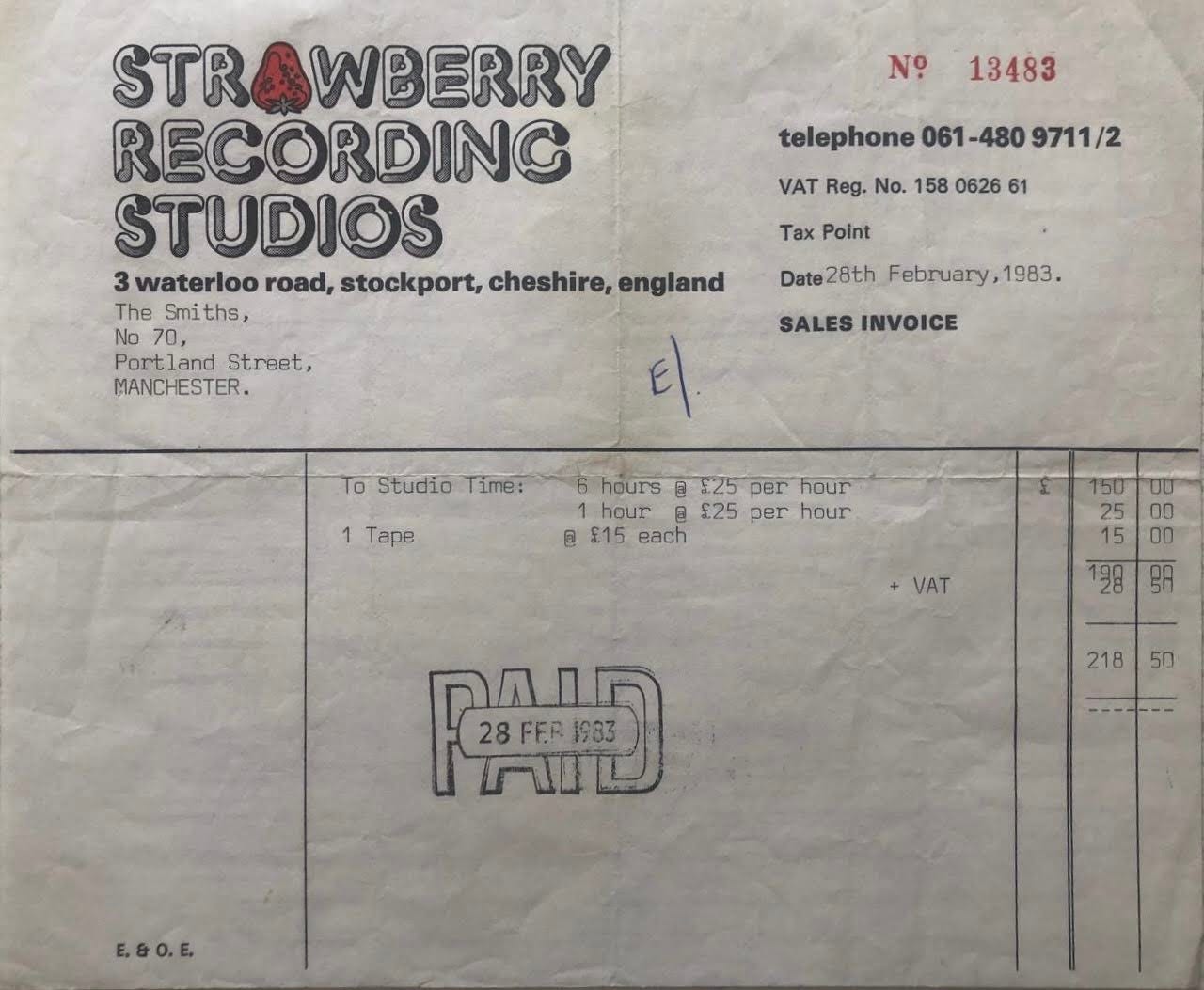
As Marr later noted, “Joe invested his time and money in us when no one else wanted to know.”4
Of Morrissey, Moss recognized that Marr had chosen the right singer:
“It was stunning, […] Morrissey was ten foot tall - I had no idea he was going to be that kind of stage performer. In rehearsals he’d been active and putting a show on, but nothing like this.”
Sadly, Morrissey never fully embraced the idea of Joe Moss managing the Smiths as they began to rise to fame. Though the exact details remain unclear, it was evident that Morrissey was at odds with Moss. This left Moss trapped in a painful dilemma, torn between his unwavering loyalty to Johnny Marr and the fracturing dynamics within the band.
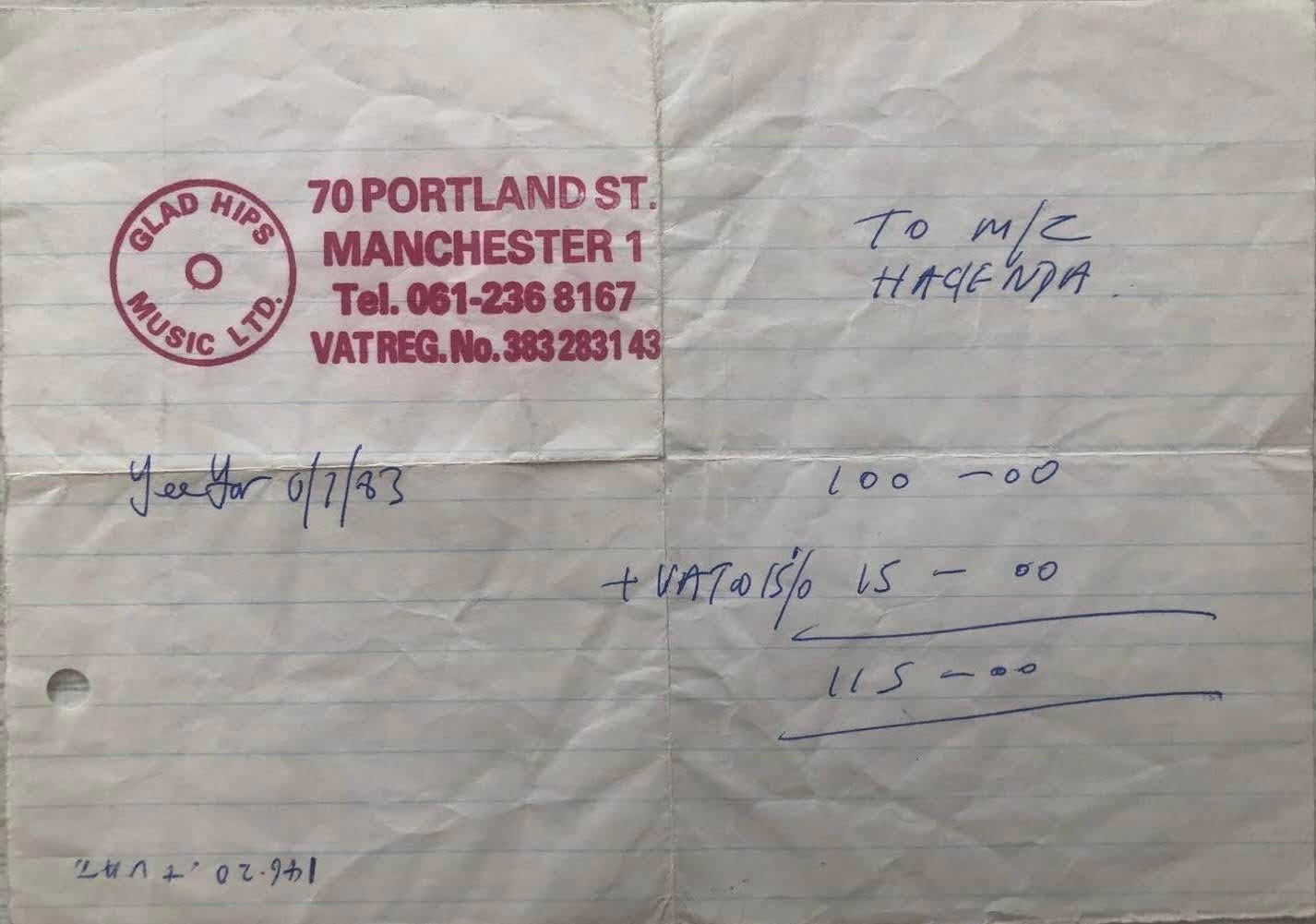
In a selfless act of sacrifice - true to the old adage of “falling on his sword” = Moss resigned on the eve of the Smiths’ first American tour. He chose to step aside to shield Marr, and the band as a whole, from the turmoil his continued presence might provoke during such a critical moment in their ascent.
As since noted by Smiths’ sound man Grant Showbiz, “We never had another manager, we just had this series of people who thought they were managers,” 5
In his 2013 autobiography, Morrissey accused Moss of attempting to “coerce” the other band members into firing him as lead singer = though he offered no evidence to support the claim. Instead, Morrissey added bitterly, “Since Joe has written himself out of the picture, he has no wish to see the little tugboat sail on.”6 Morrissey’s harsh portrayal of the Smiths’ benefactor and manager is as uncharitable as it is unbecoming.
One might suspect that Morrissey, ever the enigmatic personality, felt eclipsed by Moss’s close friendship with Johnny Marr as well as his unwavering commitment to the band. While Morrissey’s reputation for difficult charm is well established, his campaign to exile Moss from the band’s orbit strikes a peculiarly curious note. Perhaps the full truth will forever elude us. Le cœur a ses raisons que la raison ignore.
After resigning as manager of the Smiths, Moss maintained his clothing business and went on to promote shows at Manchester’s Night and Day Café. In addition, he managed the bands Marion and Haven. Moss also served as Johnny Marr’s manager, a position he held until his untimely passing in October 2015.
Joe Moss was survived by his wife Sarah and his children David, Rachel, Ivan, Stella and Edie.
-Special thanks to David Moss for his invaluable assistance and insights in writing this piece about his father.
Tony Fletcher, A Light That Never Goes Out (Three Rivers Press, 2012), p. 187.
“It had been in the foyer of the Ardwick Apollo, where Patti Smith had displayed her radiant stallions gradually lapping into seahorse nervousness. I stood in conversation with Philip Towman…when Johnny first shoved his face in, and he said, ‘You’ve got a funny voice.’ The comment contained an oblique confession, which said: you don’t talk as shockingly bad as I do.” Morrissey, Autobiography, p. 146
Notwithstanding the absence of a formal contract, Rough Trade Records was sufficiently impressed by Hand In Glove that they released it as a single on May 13, 1983. While the single credits reflect the song as having been recorded in March [19]83, in fact it was recorded in February. Morrissey was not satisfied with his vocals, so he re-recorded them in the studio in March 1983, a session that Joe Moss also paid for.
https://johnnymarr.com/October 2015
Grant Showbiz (1998), as quoted in Uncut Moz Article 1998. Retrieved June 15, 2025
Morrissey, Autobiography (Penguin Books, 2013), p. 177


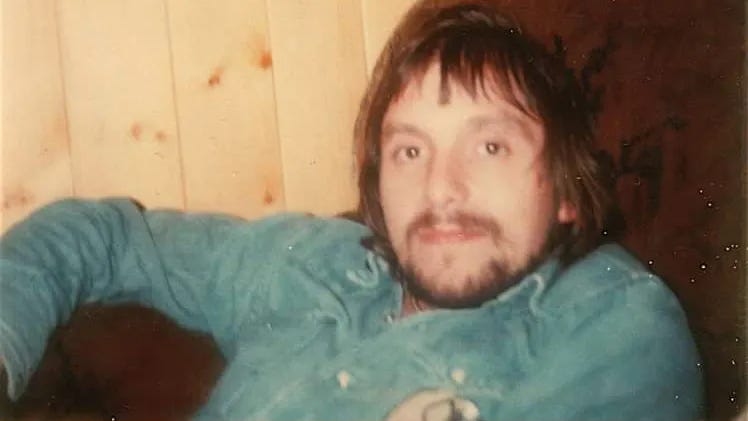
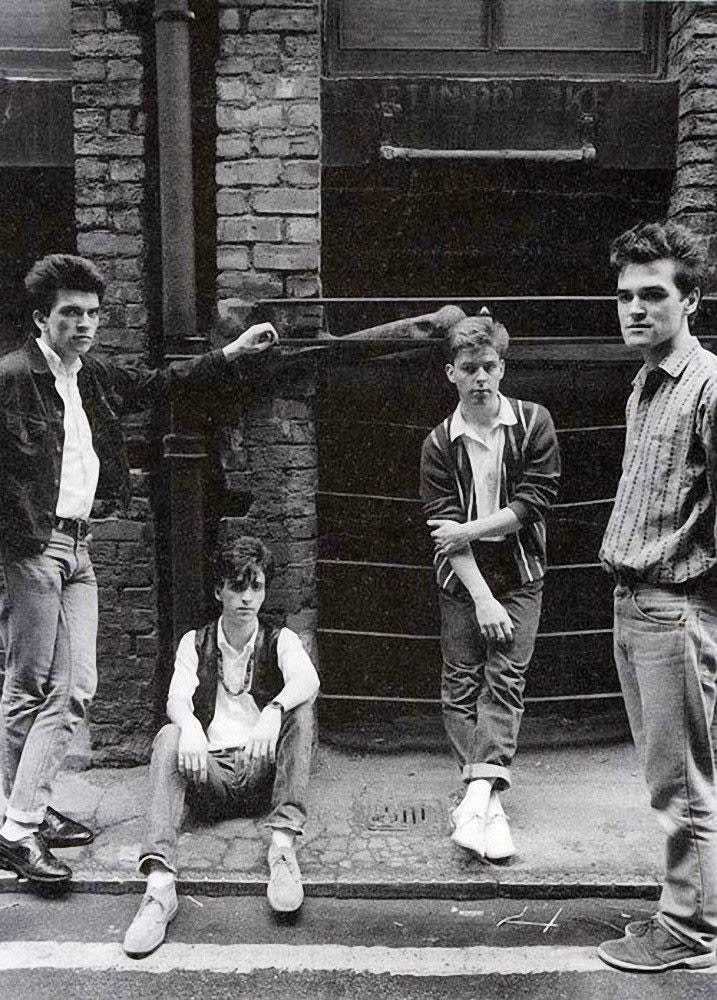
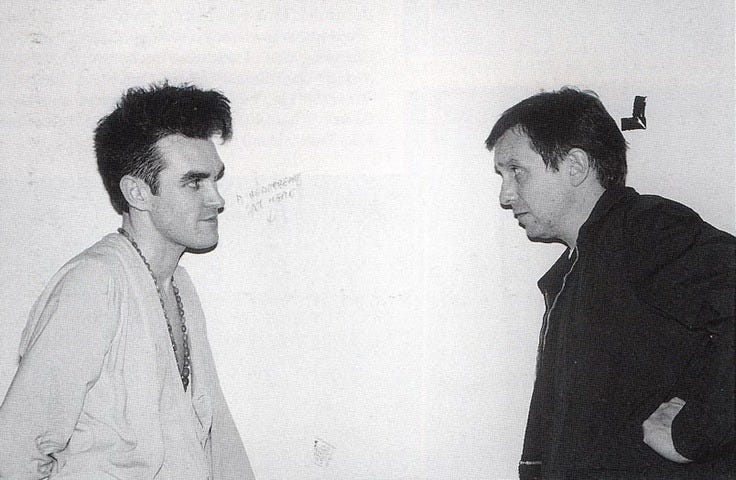

Thank you Tom, this is a nicely balanced, accurate and considered article. It was a very exciting and energetic time, there were lots of laughs and a real sense of adventure and achievement. From early 1983 they were moving so fast, becoming the band we know and love, they didn't have much time to think, it was all action. Joe was very proud of his work with The Smiths, his decision to leave was his alone and he didn't look back. In effect he was still working with The Smiths in his management role from 1999 to 2015 , for example he was helping negotiate the process behind the scenes for The Sound of The Smiths and the Rhino box sets. He was an 'original' and in Johnny's words 'a true bohemian' which helped set The Smiths apart in the early days, enabling them to do it their way and take the world on with great success.